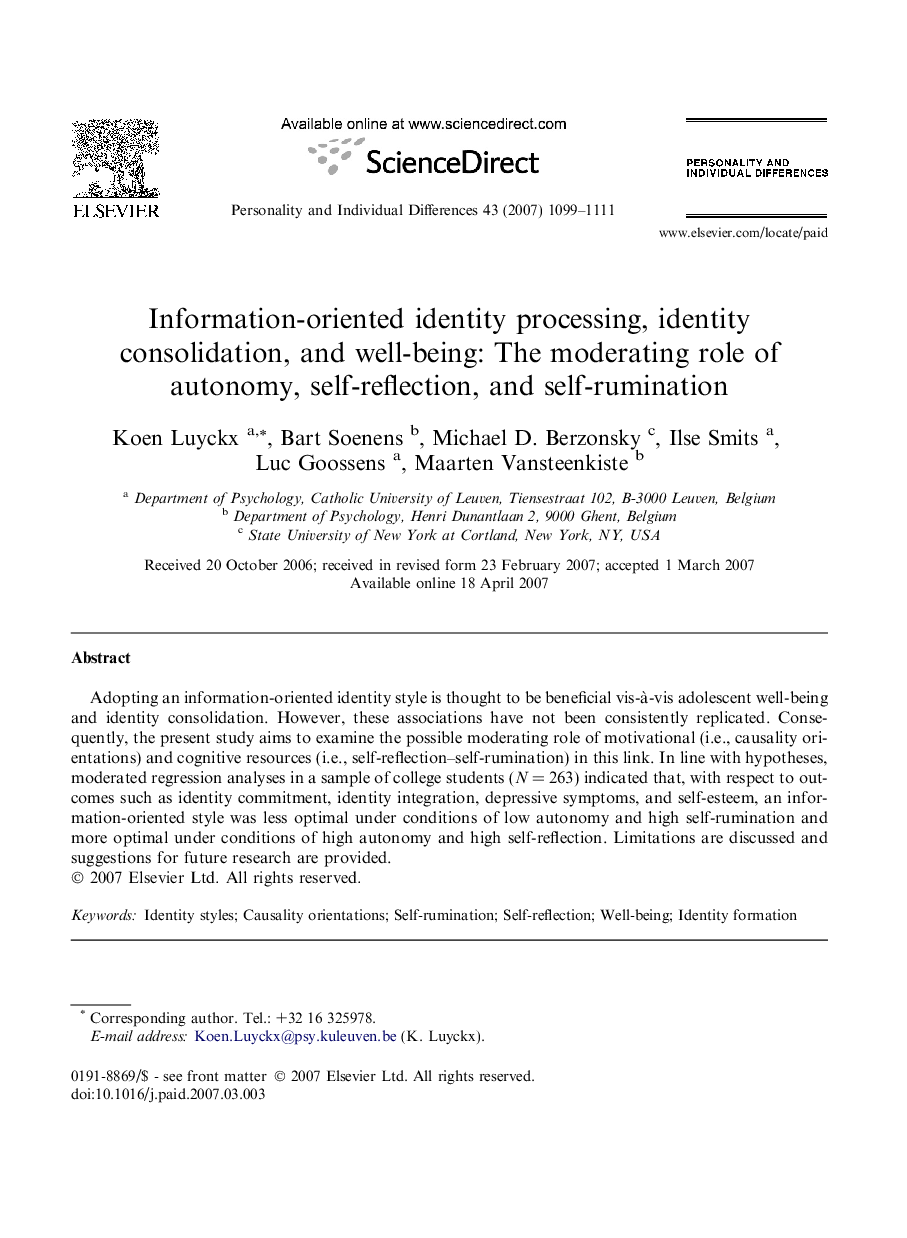| Article ID | Journal | Published Year | Pages | File Type |
|---|---|---|---|---|
| 893143 | Personality and Individual Differences | 2007 | 13 Pages |
Adopting an information-oriented identity style is thought to be beneficial vis-à-vis adolescent well-being and identity consolidation. However, these associations have not been consistently replicated. Consequently, the present study aims to examine the possible moderating role of motivational (i.e., causality orientations) and cognitive resources (i.e., self-reflection–self-rumination) in this link. In line with hypotheses, moderated regression analyses in a sample of college students (N = 263) indicated that, with respect to outcomes such as identity commitment, identity integration, depressive symptoms, and self-esteem, an information-oriented style was less optimal under conditions of low autonomy and high self-rumination and more optimal under conditions of high autonomy and high self-reflection. Limitations are discussed and suggestions for future research are provided.
